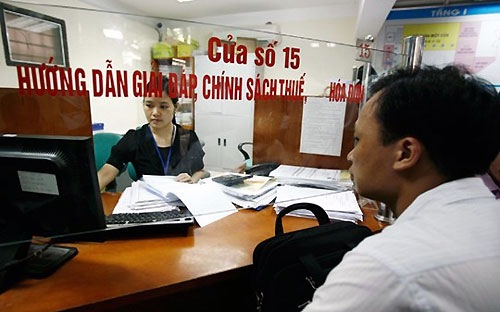The United Nations Convention on Contracts for the International Sale of Goods (hereinafter referred to as CISG) has been effective in Vietnam since January 1, 2017. Understanding the content of the Convention, particularly comprehending the differences between the CISG and the Vietnam Commercial Law 2005, in order to proactively and effectively apply this unified legal document, is essential for legal practitioners and Vietnamese import-export businesses.
Below are some major differences between CISG and the Commercial Law 2005 along with some notes for businesses:

From January 1, 2017, the United Nations Convention on Contracts for the International Sale of Goods (Vienna Convention - CISG) came into effect in Vietnam. This is considered a unified code on international sale of goods, with 101 articles concerning legal issues from the formation of the contract. The Vienna Convention also stipulates the rights and obligations of the seller and the buyer, and specifies sanctions when one of the parties breaches the contract as well as issues of compensation, contract termination, force majeure, goods preservation...
1. Form of the Contract
The Commercial Law 2005 requires international sale of goods contracts to be made in writing or in another form that has equivalent legal value (Clause 2, Article 27).
CISG recognizes the principle of freedom of contract form, whereby a sales contract does not have to be in writing but can be established verbally, by conduct and can be proven by any means, including witnesses (Article 11 CISG).
This is a fundamental difference between CISG and Vietnamese law regarding the form of contracts. When participating in CISG, in order to create compatibility between Vietnamese law and CISG, Vietnam has declared a reservation regarding the form of contracts under Article 96 CISG[1]. This means that international sales contracts between Vietnamese businesses and businesses from CISG member countries must still be established in written form.
It must be affirmed that under the spirit of CISG and the 2005 Vietnamese Commercial Law, forms such as telegrams, telex, fax, data messages (emails, Viber, Zalo…) are also considered equivalent to written form. Given the fast, convenient, and free nature, the trend of using electronic means for contract conclusion and information exchange to perform contracts is becoming increasingly popular.
Notes for Businesses:
In recent times, many Vietnamese businesses have encountered fraudulent risks through emails and suffered losses amounting to millions of USD, exemplified by the Echopack case in the seafood sector[2]. Therefore, in addition to using electronic means as a tool for concluding and implementing contracts, Vietnamese businesses need to adopt technical and technological measures for information security and safety and also need to be more cautious in transactions.
Businesses should note that the written form applies not only to contracts but also to any amendments or terminations of contracts, offers, acceptances of offers, or other exchanges between the parties. With this regulation, businesses performing contracts that involve telephone exchanges should reconfirm information in writing to ensure conformity regarding the form of the contract.
2. Acceptance of Offer with Modifications and Supplements
Clause 1, Article 393 of the Civil Code 2015 stipulates: Acceptance of an offer to enter into a contract is the agreement of the offeree to the offeror regarding the entire content of the offer. Therefore, if the offeree proposes modifications or conditions to the offeror, the offeree has made a new offer (Article 392 of the Civil Code 2015).
CISG approaches more flexibly. Article 19 CISG stipulates that a response containing additional or different terms that do not materially alter the terms of the offer constitutes an acceptance unless the offeror objects orally immediately or sends a notice of objection to the offeree. If the offeror does not do so, the content of the contract will be the content of the offer with the modifications stated in the acceptance. Additional or modifying terms relating to price, payment conditions, the quality and quantity of the goods, the place and time of delivery, the extent of one party's liability, or the settlement of disputes are considered terms that materially alter the terms of the offer.
Some modifications are considered not to materially alter the terms of the offer: adjustments to the quantity of goods per shipment without changing the total quantity of goods; confidentiality requests until the parties disclose the contract content; modifications to some packaging requirements...
It should be noted that determining whether a modification or addition to the offer materially alters the terms of the offer needs to be done case by case, depending on transaction factors and the impact of the offer modifications/additions on the entire contract content and each party to the contract. For example, normally, a modification related to packaging requirements is usually considered "not material," but in some cases, packaging is deemed a core element of the contract[3].
Notes for Businesses:
During contract negotiations, especially through email exchanges and other electronic means, it is essential to clarify the acceptance or rejection of proposals made by the partner, even for minor issues. For greater safety, there should be a confirmation letter covering all matters agreed upon during contract negotiations.
3. Time Limit for Inspecting Goods and Complaining about Non-Conforming Goods
According to the Commercial Law 2005, the time limit for complaints is 3 months for quantity complaints, and 6 months for quality complaints, starting from the date of delivery. CISG stipulates this period can be a maximum of 2 years from the delivery date. This difference between the Commercial Law 2005 and CISG is entirely justifiable as the Commercial Law 2005 was drafted for domestic contracts, while CISG is applied to international sales contracts (assumed to be technically more complex and with corresponding legal regulations).
However, it should be noted that CISG expressly and strictly regulates the period for inspecting goods and notifying of non-conformity of goods.
Goods inspection, as stipulated by Article 38 CISG, must be conducted by the buyer (importer, consignee) in the shortest period practicable from the actual circumstances and according to Article 39 CISG, if a non-conformity of goods is discovered, it must be notified within a reasonable time after the buyer has discovered or ought to have discovered it. Vietnamese Commercial Law does not have a similar regulation.
The question arises: how to determine "the shortest practicable period from the actual circumstances" and "reasonable time"?
CISG does not provide criteria for determining what constitutes "the shortest practicable period from the actual circumstances," thus, this criterion is often determined depending on specific situations. Case law on this provision also shows several criteria that can be used to determine "the shortest period" such as: aspects related to the buyer (personal or commercial status of the buyer…), type of goods, complexity degree of goods, nature of goods (perishable goods, seasonal goods…), the volume of delivered goods, the volume of work needed to inspect the goods… Several other criteria such as: buyer's professionalism/experience; availability of facilities for inspection; utilization deadline, form of use or resale intended by the buyer, custom, practice, and other circumstantial factors.[4]
Case law applying Article 38.1 also shows the following time periods were considered to meet the requirement: one month after the delivery date; two weeks after the first agreed delivery date; one week after delivery; a few days after delivery at the port of destination; three days after delivery to the buyer; two days after delivery or even on the delivery day to the buyer[5].
"Reasonable time" for notifying of non-conforming goods is determined case by case. This period could be 1 day, 1 week, or 1 month, depending on the situation, nature of goods, resource requirements, method of use[6]...
Notes for Businesses:
Vietnamese businesses need to strictly comply with these deadlines: after receiving goods, immediately inspect them, especially for perishable goods; for other goods, it is advisable to inspect within 15 days from the date of receipt. If discovering non-conformity (quantity, quality…), immediately notify the partner to find a resolution.
The best way is to negotiate and clearly stipulate in the contract these deadlines to avoid future disputes. For instance, the parties could stipulate the inspection and complaint deadline as 1 month from the receipt date.
[1] Several other countries also maintain this reservation: Argentina, Armenia, Belarus, Chile, Estonia, Hungary
[2] See more on this issue at: http://viac.vn/goc-nhin-trong-tai-vien/khong-"mat-canh-giac"-voi-rui-ro-trong-thanh-toan-quoc-te-a1056.html
[3] Case law on sugar packed in quality packaging (may be new or used bags), cited by: Karl H. Neumayer, Catherine Ming, Convention de Vienne sur les contrats de vente internationale de marchandise, Cedidac, 1993, p.182. Or case law on smoked meat, where the offeree’s proposal to deliver unpackaged meat was considered a material change in the offer's terms (the offer specified packaging for smoked meat), see German case law: OIG Hamm, September 22, 1992- 19 U 97/91.
[4] See in CLOUT Case No. 423 Oberster Gerichtshof, August 27, 1999.
[5] UNCITRAL, UNCITRAL Digest of Case Law on the United Nations Convention on Contracts for the International Sale of Goods, 2012 edition, United Nations, New York, 2012, p. 162, para. 13-14.
[6] See decisions of Austrian courts in CLOUT Case No. 1057 Oberster Gerichtshof, April 2, 2009; Oberlandesgericht Linz, June 1, 2005; Case No. 538 Oberlandesgericht Innsbruck, April 26, 2002. In the case law of August 27, 1999, the Oberster Gerichtshof affirmed that generally, the buyer must notify the seller under Article 39.1 within 14 days from delivery. For example, in the earlier case of May 27, 1997, related to deep drill stabilizers, Austria's Supreme Court allowed up to 1 month.
*** Associate Professor, Ph.D. Nguyen Minh Hang—Arbitrator, Vietnam International Arbitration Center***
Source: Business Forum
 Article table of contents
Article table of contents





.Medium.png)
.Medium.png)
.Medium.png)
.Medium.png)
